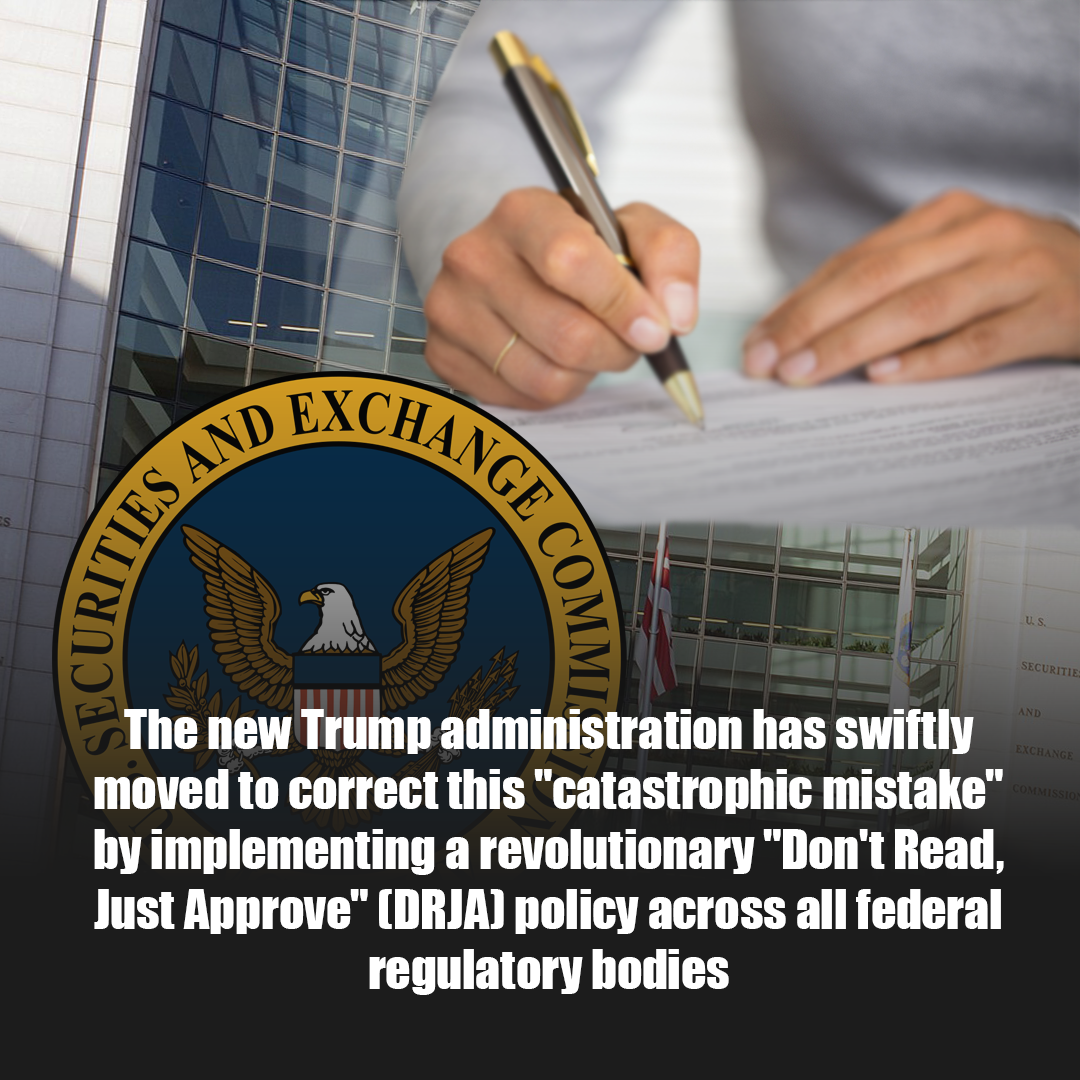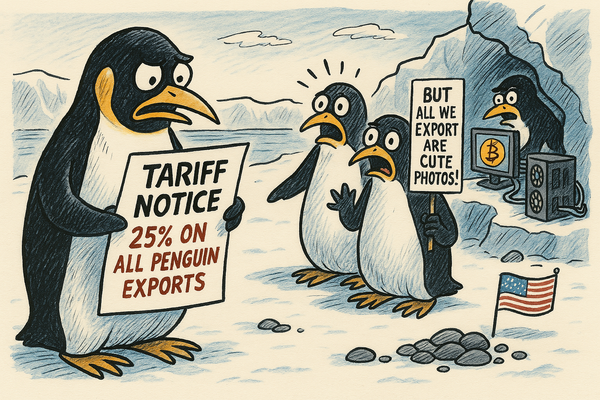Revealed: SEC Confusion Stems From Regulator Trying to Understand Crypto by Reading Whitepapers

WASHINGTON, D.C. — In a stunning revelation that has rocked the financial world, sources within the Securities and Exchange Commission have confirmed that years of regulatory confusion surrounding cryptocurrency stemmed from a fundamental error: SEC officials were actually attempting to read and understand cryptocurrency whitepapers.
The new Trump administration has swiftly moved to correct this "catastrophic mistake" by implementing a revolutionary "Don't Read, Just Approve" (DRJA) policy across all federal regulatory bodies.
"We've discovered the fatal flaw in previous approaches to crypto regulation," explained newly appointed SEC Chair Mark T. Uyeda, who totally didn't front-run purchases in any of the cryptocurrencies the SEC has reviewed. "Our predecessors were wasting valuable time trying to decipher sentences like 'blockchain-enabled decentralized autonomous organizations leverage cryptographic consensus mechanisms to disintermediate traditional financial paradigms.' That's where they went wrong."
According to internal documents obtained exclusively by this publication, the DRJA policy explicitly forbids regulators from reading any documentation longer than a single page or containing more than three technical terms. Instead, approval is granted based on a proprietary formula that primarily weighs campaign contributions and the net worth of a project's backers.
"President Trump has always believed in cutting red tape," said White House spokesperson Madison Greenfield. "Why have regulators waste months trying to understand incomprehensible jargon when we could be creating more billionaires right now?"
The new policy has already led to a significant ruling on previously controversial cryptocurrency projects. Within hours of the application being submitted, the SEC officially declared that "TrumpCoin" would not be classified as a security, freeing it from regulatory oversight.
Sources indicate, however, that not every political meme coin that enriches a politician gets this treatment. Just this week, Jimmy Carter's "PeanutCoin" was labeled a security and trading was halted.
"There are rules against a president enriching himself, especially through defrauding collectors with a cheap memecoin," explained an SEC spokesperson while adjusting their MAGA hat. "We don't stand for that sort of thing."
SEC insiders describe the dramatic cultural shift at the agency. "Before, we had to pretend we understood what 'non-fungible' meant," said one anonymous staff member. "Now we just look at the market cap projection and ask 'will this make rich people richer?' If yes, it's approved before lunch."
In a related development, the Treasury Department has introduced a new initiative called "Operation Blind Eye," which provides automatic tax exemptions for any business with the words "blockchain," "decentralized," or "to the moon" in its name.
At a recent press conference, our reporter asked about potential market manipulation or investor protection concerns. In response, Uyeda handed our reporter a Ledger hardware wallet. After spending three hours attempting to install the required firmware and another two hours trying to connect it to anything, our reporter has given up on pursuing further questions.
The cryptocurrency market has responded enthusiastically to the new regulatory approach, with total market capitalization increasing by 47% overnight. One crypto entrepreneur, who wished to remain anonymous, expressed his approval: "This is the regulatory clarity we've been asking for—complete absence of regulation."
Meanwhile, a new presidential executive order has established a "Meme Coin Task Force" tasked with ensuring America leads the world in digital assets named after internet jokes, dog breeds and bodily functions.
When asked about the administration's next regulatory goals, Uyeda's eyes lit up. "ETFs," he exclaimed. "We think everything should have ETFs. Dogecoin ETF, Shiba Inu ETF, Bored Ape NFT ETF, Trump tweets ETF—you name it."
When our reporter pointed out the absurdity of creating an ETF for what is essentially a single asset, Uyeda replied, "Look, people don't trust crypto, but they trust ETFs sold by guys in expensive suits on Wall Street. Plus, the beauty is we make money twice—first when people buy the actual token, then again when the ETF has to buy millions of the same token to back the fund. ETFs are a win for everyone—we get to make money off the asset when the ETF buys it, and retail consumers get to feel safe knowing they bought something they understand."





